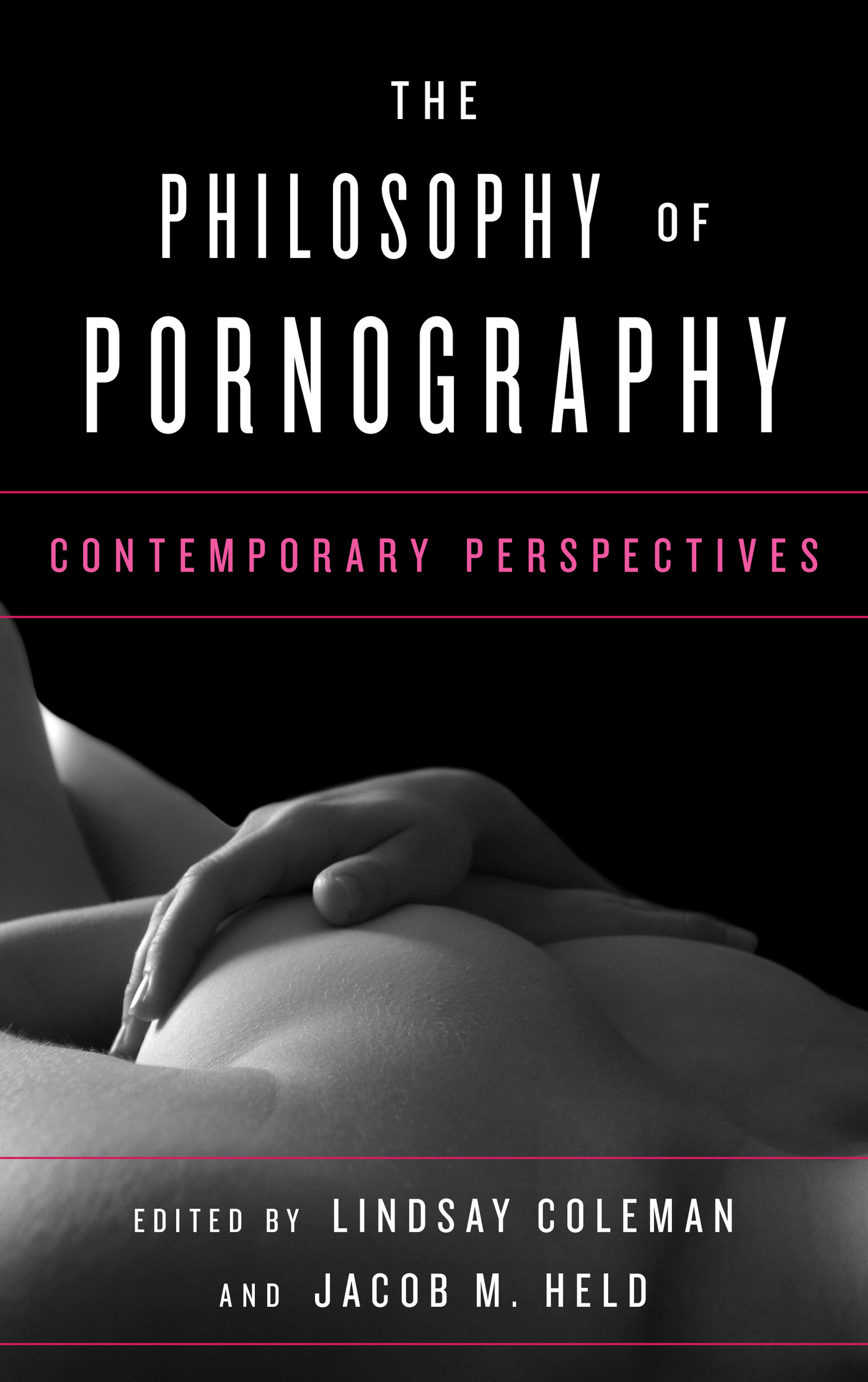The Philosophy of Pornography
The Philosophy of Pornography
Contemporary Perspectives
Edited by
Lindsay Coleman
Jacob M. Held
ROWMAN & LITTLEFIELD
Lanham Boulder New York London
Published by Rowman & Littlefield
A wholly owned subsidiary of The Rowman & Littlefield Publishing Group, Inc.
4501 Forbes Boulevard, Suite 200, Lanham, Maryland 20706
www.rowman.com
16 Carlisle Street, London W1D 3BT, United Kingdom
Copyright 2014 by Rowman & Littlefield
All rights reserved. No part of this book may be reproduced in any form or by any electronic or mechanical means, including information storage and retrieval systems, without written permission from the publisher, except by a reviewer who may quote passages in a review.
British Library Cataloguing in Publication Information Available
Library of Congress Cataloging-in-Publication Data
The philosophy of pornography : contemporary perspectives / edited by Lindsay Coleman and Jacob M. Held.
p. cm.
Includes bibliographical references and index.
ISBN 978-1-4422-3596-0 (hardback : alk. paper) ISBN 978-1-4422-3597-7 (ebook) 1. Pornography. 2. PornographyPhilosophy. I. Coleman, Lindsay, 1978 II. Held, Jacob M., 1977
HQ471.P46 2014
363.4'7dc23
2014014372
 TM The paper used in this publication meets the minimum requirements of American National Standard for Information Sciences Permanence of Paper for Printed Library Materials, ANSI/NISO Z39.48-1992.
TM The paper used in this publication meets the minimum requirements of American National Standard for Information Sciences Permanence of Paper for Printed Library Materials, ANSI/NISO Z39.48-1992.
Printed in the United States of America
For my professors, Roger Horrocks and Margaret Henley
LC
For Cinemax After Dark,
without which none of this would have been possible, or necessary.
JMH
Acknowledgments
First and foremost I must thank Jacob Held, my partner in assembling this wonderful group of contributors, thinkers, and philosophers. It would have been impossible without him, in so many ways. He has taught me an immense amount about what genuine collaboration really means. Thank you. I must also give a huge amount of credit to our publisher, Rowman & Littlefield, for being patient, supportive, and for possessing infectious confidence in the thesis of this volume. I must also personally thank my partner Sarah and our baby Audrey for being very patient with Daddy while we were on holiday in New Zealand and he was editing drafts. I would also like to thank Katrien Jacobs. The road to this volume began, very much, with our serious discussions on the nature of pornography. Similarly, Jurgen Brunings insights on the subject of erotica and pornography were immensely helpful. Above all I want to again thank every single one of the contributors to this book for agreeing to grapple with the reality of pornography as a part of modern life, and hence their responsibility to address its impact, each from the particular perspective of their own discipline or profession.
Lindsay Coleman
Introduction
Lindsay Coleman and Jacob M. Held
Why Pornography?
Whenever the area of our research comes up, and we respond truthfully about what it is we do, we are immediately asked, But, why pornography? This question is incredibly hard to answer; in fact, this whole book is simply that, an answer to the question of why we should study pornography. But the question bears many meanings. It might be a question about why we, as individuals, study pornography. Of all the areas of philosophy, legal or political theory, film theory, or modern culture we could study, why choose pornography? Is there something lascivious lurking behind our ostensive rationale of furthering understanding? In this regard, the question appears to suspect our motives and impugn our characters. And oddly enough, porn studies seems to be the only field where knowing much more than others is perceived as a fault. Were we astrophysicists, youd expect us to know everything, or pretty close to everything about physics, our field, the history of our field, and perhaps even a bit about the philosophy of science. In fact, you wouldnt lend credence to our position if it were demonstrated that we didnt know considerably more than most others about our field. Were we experts in war and public policy, youd expect an encyclopedic knowledge of international law, treaties, conventions, as well a great deal about the history of war and warfare. You wouldnt find it at all odd or troubling that we were familiar with war atrocities and conventions regarding torture. But if we study pornography, knowing a great deal leads to suspicion, and gets back to the original meaning of the question: Is there something perverse lurking beneath the surface? Another meaning to the question is, why study porn in the sense of why study something that does not matter? Porn is taken to be innocuous.
So the person to whom you mention that you study porn might respond, You must really enjoy your research. This respondent will also be wearing a smirk that seems to say, I wish I could look at porn for a living. This is a harmless, albeit creepy, response. On the other end is the response that belittles this line of inquiry. This response is usually some variation on, Wow, I shouldve gone into academia. This response is meant to diminish the value of academic work, implying that its simply looking at porn. It also implies that pornography isnt worth thinking about seriously. Academics spend their time on worthless endeavors, like pornography. Rarely will the response an academic receives be proportionate to the seriousness of the work. Rarely does a researcher in porn studies hear, Thats fascinating, and important. What do you think about... After all, its just porn.
It is this attitude that often emotionally exhausts academics who work in porn studies, because it isnt just outsiders, family members, or random acquaintances who respond this wayit is coworkers, colleagues in academia. But porn does matter, and how we think about, respond to, and produce and consume it is both a window onto how we think about sex and sexuality as well as the active construction of our contemporary understanding of sex and sexuality. Anyone who is interested in what it means to be a human being in the twenty-first century should be interested in the issues surrounding and dealt with in the study of pornography.
But the study of pornography always begins from a position of justifying itself. And experts in the field must begin from a defensive posture, explaining why their studies are valuable and why they are not in some way profligate for pursuing this area of research. In this brief introduction, therefore, we will seek to offer such a defensea defense of why it is important to study pornography.
First, lets begin from a simple truth: Pornography is a part of modern society, a considerable part of modern society. It is present on objects as essential and personalized as our iPhones and laptops and, thanks to Internet piracy, large amounts of commercially produced pornography are now completely free. In fact, when it comes to the Internet, you must go out of your way to protect yourself from the accidental slippage of pornography into your everyday life. One wrong key stroke, one wrong search term and immediately Google will present you with the best the adult entertainment industry has to offer, or a modest warning that you are about to venture into the red light district of the Internet. In addition, beyond traditional hard-core pornography, a pornographic sensibility can be seen permeating all aspects of culture, from tween and young teen fashions to television and commercially successful films. In fact, pornography is so prevalent that more often than not it is taken as a given in our modern social space. We assume that all people look at or know about pornography. Something this impactful, this definitive of modern culture needs to be laid open to scrutiny.
Next page
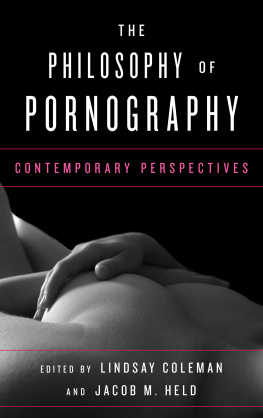
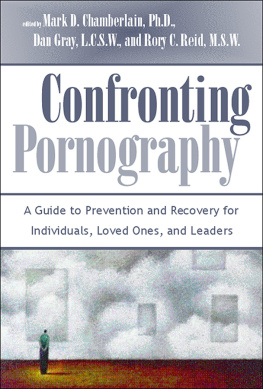

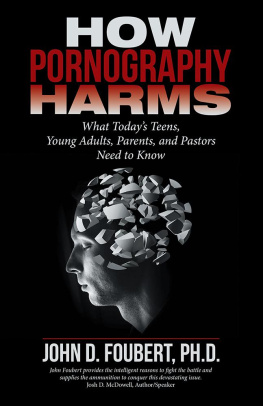
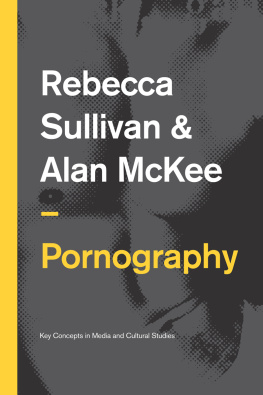
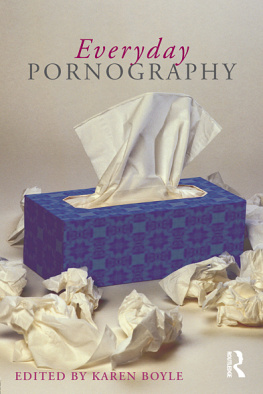

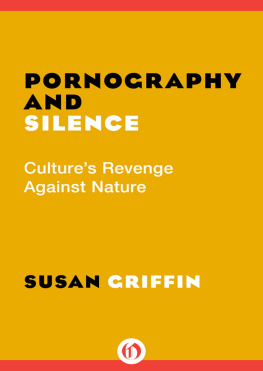
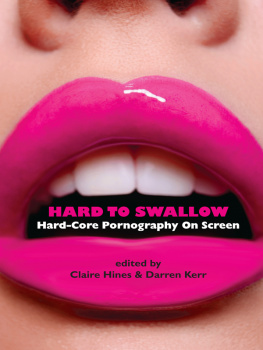
 TM The paper used in this publication meets the minimum requirements of American National Standard for Information Sciences Permanence of Paper for Printed Library Materials, ANSI/NISO Z39.48-1992.
TM The paper used in this publication meets the minimum requirements of American National Standard for Information Sciences Permanence of Paper for Printed Library Materials, ANSI/NISO Z39.48-1992.